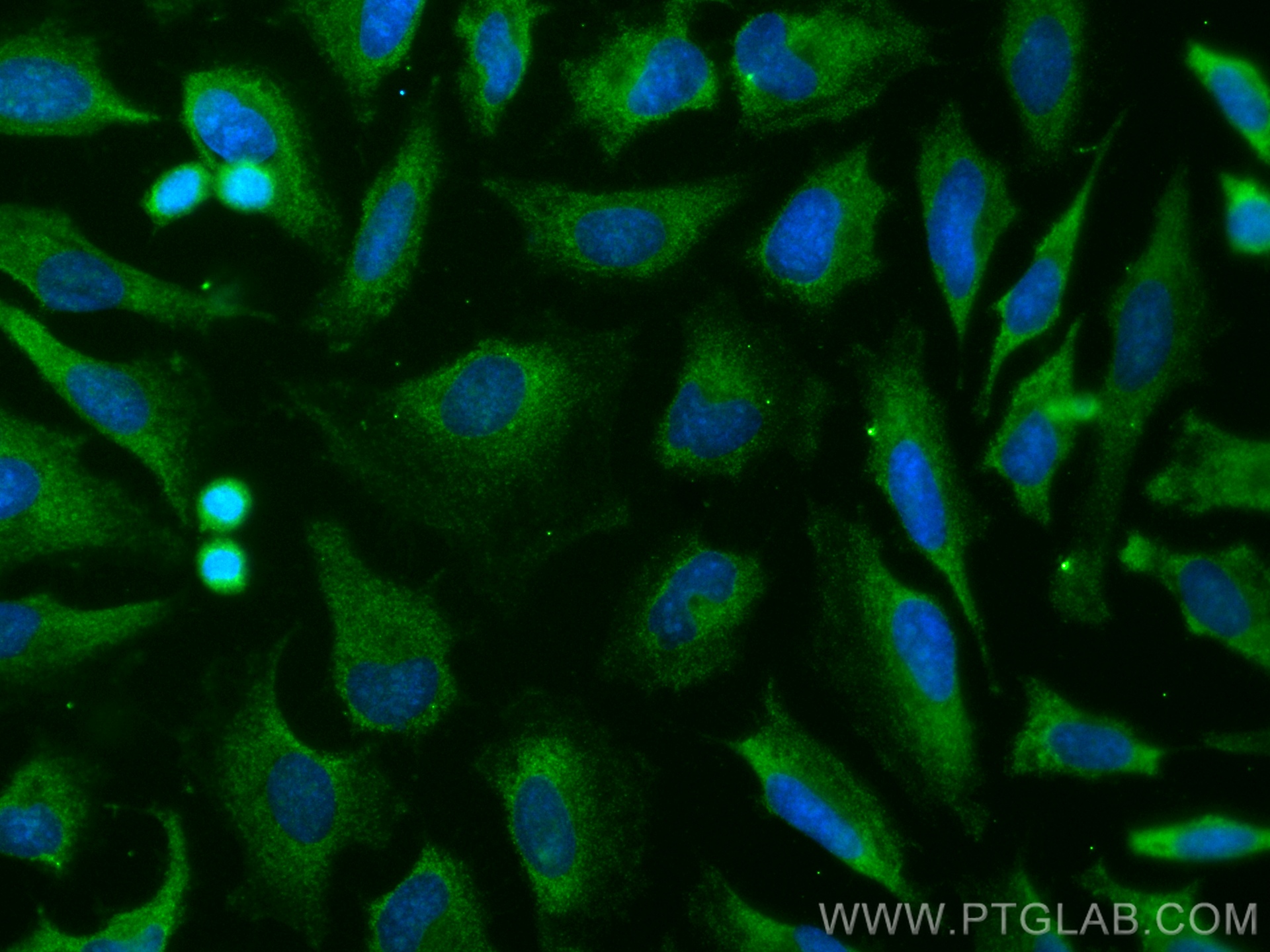CoraLite® Plus 488-conjugated BAD Monoclonal antibody
BAD Monoclonal Antibody for IF/ICC
Host / Isotype
Mouse / IgG1
Reactivity
Human, Mouse, Rat
Applications
IF/ICC
Conjugate
CoraLite® Plus 488 Fluorescent Dye
CloneNo.
4B12G2
验证数据展示
经过测试的应用
| Positive IF/ICC detected in | HeLa cells |
For other applications, we recommend the unconjugated version of this antibody, 67830-1-Ig
推荐稀释比
| Application | Dilution |
|---|---|
| Immunofluorescence (IF)/ICC | IF/ICC : 1:50-1:500 |
| It is recommended that this reagent should be titrated in each testing system to obtain optimal results. | |
| Sample-dependent, Check data in validation data gallery. | |
产品信息
CL488-67830 targets BAD in IF/ICC applications and shows reactivity with Human, Mouse, Rat samples.
| Tested Applications | IF/ICC Application Description |
| Tested Reactivity | Human, Mouse, Rat |
| Immunogen | Peptide 种属同源性预测 |
| Host / Isotype | Mouse / IgG1 |
| Class | Monoclonal |
| Type | Antibody |
| Full Name | BCL2-associated agonist of cell death |
| Synonyms | BAD, BBC2, BBC6 |
| Calculated Molecular Weight | 18 kDa |
| Observed Molecular Weight | 18-25 kDa |
| GenBank Accession Number | BC001901 |
| Gene Symbol | BAD |
| Gene ID (NCBI) | 572 |
| RRID | AB_2934571 |
| Conjugate | CoraLite® Plus 488 Fluorescent Dye |
| Excitation/Emission Maxima Wavelengths | 493 nm / 522 nm |
| Form | Liquid |
| Purification Method | Protein G purification |
| UNIPROT ID | Q92934 |
| Storage Buffer | PBS with 50% Glycerol, 0.05% Proclin300, 0.5% BSA, pH 7.3. |
| Storage Conditions | Store at -20°C. Avoid exposure to light. Stable for one year after shipment. Aliquoting is unnecessary for -20oC storage. |
背景介绍
BAD, also named as BBC6 and BCL2L8, promotes cell death. It is successfully competes for the binding to Bcl-X(L), Bcl-2 and Bcl-W, thereby affecting the level of heterodimerization of these proteins with BAX. BAD can reverse the death repressor activity of Bcl-X(L), but not that of Bcl-2. It appears to act as a link between growth factor receptor signaling and the apoptotic pathways.
实验方案
| Product Specific Protocols | |
|---|---|
| IF protocol for CL Plus 488 BAD antibody CL488-67830 | Download protocol |
| Standard Protocols | |
|---|---|
| Click here to view our Standard Protocols |
